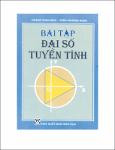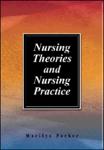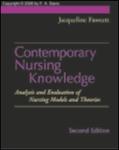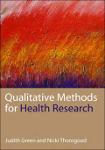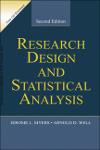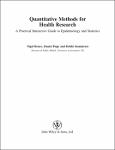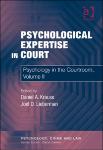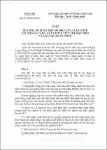Search
Author
- Quốc Hội (2)
- Alchuler, David S. (1)
- Bruce, Nigel (1)
- BURR, RACHEL (1)
- next >
Subject
- Nursing (5)
- Luật (2)
- 4069/2001/QĐ-BYT (1)
- CHILDREN_S RIGHTS IN V... (1)
- next >
Date issued
Has File(s)
- true (16)
Search Results
This book offers the perspective that nursing theory
is essentially connected with nursing practice, research, education, and development. Nursing theories, regardless of complexity or abstraction, reflect
nursing and are used by nurses to frame their thinking, action, and being in the world. As guides for
nursing endeavors, nursing theories are practical in
nature and facilitate communication with those being nursed as well as with colleagues, students, and
persons practicing in related health and illness services. At the same time, all aspects of nursing are essential for developing and evolving nursing theory.
It is hoped that these pages make clear the interrelations of nursing theory and various nursing endeavors, and that the discipline and practice of nursing
will thus... |
As we continue to be challenged by the organization and financing of the contemporary health
care system, as well as a worldwide nursing shortage, the need to articulate what nursing is and
can be has never been more critical. Conceptual models of nursing and nursing theories provide
clear answers to questions about what nursing is, what nursing can be, and how what nursing is
and can be influences what nurses do—or should do. Conceptual models of nursing and nursing
theories also provide:
• Answers for nurse educators, who continue to seek better ways to prepare students for
current and future trends in health services.
• Answers for nurse researchers, who continue to seek ways to identify the phenomena of
central interest to nursing and to design studies that reflect nurs... |
There are a number of excellent introductory textbooks available on qualitative research, so the decision to produce yet another one perhaps needs justifying. We have written this one in response to frequent requests from our students,v who are predominantly postgraduates with considerable professional experience but little prior knowledge of the social sciences. They come from almost all countries in the world, and want an introduction to qualitative methods that is sensitive to the practicalities of doing sound research on health topics in a wide variety of settings. Although the principles of research design and conduct may be the same wherever it is happening, and whatever the topic studied, clearly the practice is not. First, the context of health research may be rather differe... |
In writing this book, we had two overriding goals. The first was to provide a textbook from
which graduate and advanced undergraduate students could really learn about data analysis.
Over the years we have experimented with various organizations of the content and have
concluded that bottom-up is better than top-down learning. In view of this, most chapters
begin with an informal intuitive discussion of key concepts to be covered, followed by the
introduction of a real data set along with some informal discussion about how we propose
to analyze the data. At that point, having given the student a foundation on which to build,
we provide a more formal justification of the computations that are involved both in
exploring and in drawing conclusions about the data, as well as an ... |
Welcome to Quantitative Methods for Health Research, a study programme designed to introduce
you to the knowledge and skills required to make sense of published health research, and to begin
designing and carrying out studies of your own.
The book is based closely on materials developed and tested over almost ten years with the
Master of Public Health (MPH) programme at the University of Liverpool, UK. A key theme of
our approach to teaching and learning is to ensure a reasonable level of theoretical knowledge
(as this helps to provide a solid basis to knowledge), while placing at least as much emphasis
on the application of theory to practice (to demonstrate what actually happens when theoretical
‘ideals’ come up against reality). For these reasons, the learning materials h... |
On the face of it, enormous political, social and economic changes were taking place in Vietnam. However, while the Vietnamese media fre quently refers to the country’s ratification of the CRC as an unprecedented success for the welfare of its children (Khanh, 1996), my research findings, like those of Bond (1994), indicate that the CRC was ratified and then actively used among aid agencies without due consideration to the specific nature of local value systems. |
Expertise in Court: Perspectives on Testimony is the second of a two-volume set on the Psychology of the Courtroom. The authors, a renowned group of psychology and legal scholars, offer definitive coverage of the use of psychological expert testimony and evidence in a variety of legal contexts. They explore the controversies that surround it, from questions of its admissibility to its effects on eventual juror decisions. A wide range of topics are covered including system and estimator variables in eyewitness identification, expert testimony on psychological syndromes, the insanity defence and sexual harassment, how child sexual abuse is used by the courts, and recent research on false confessions. They also provide a comparative analysis exploring how different types of psychologic... |

